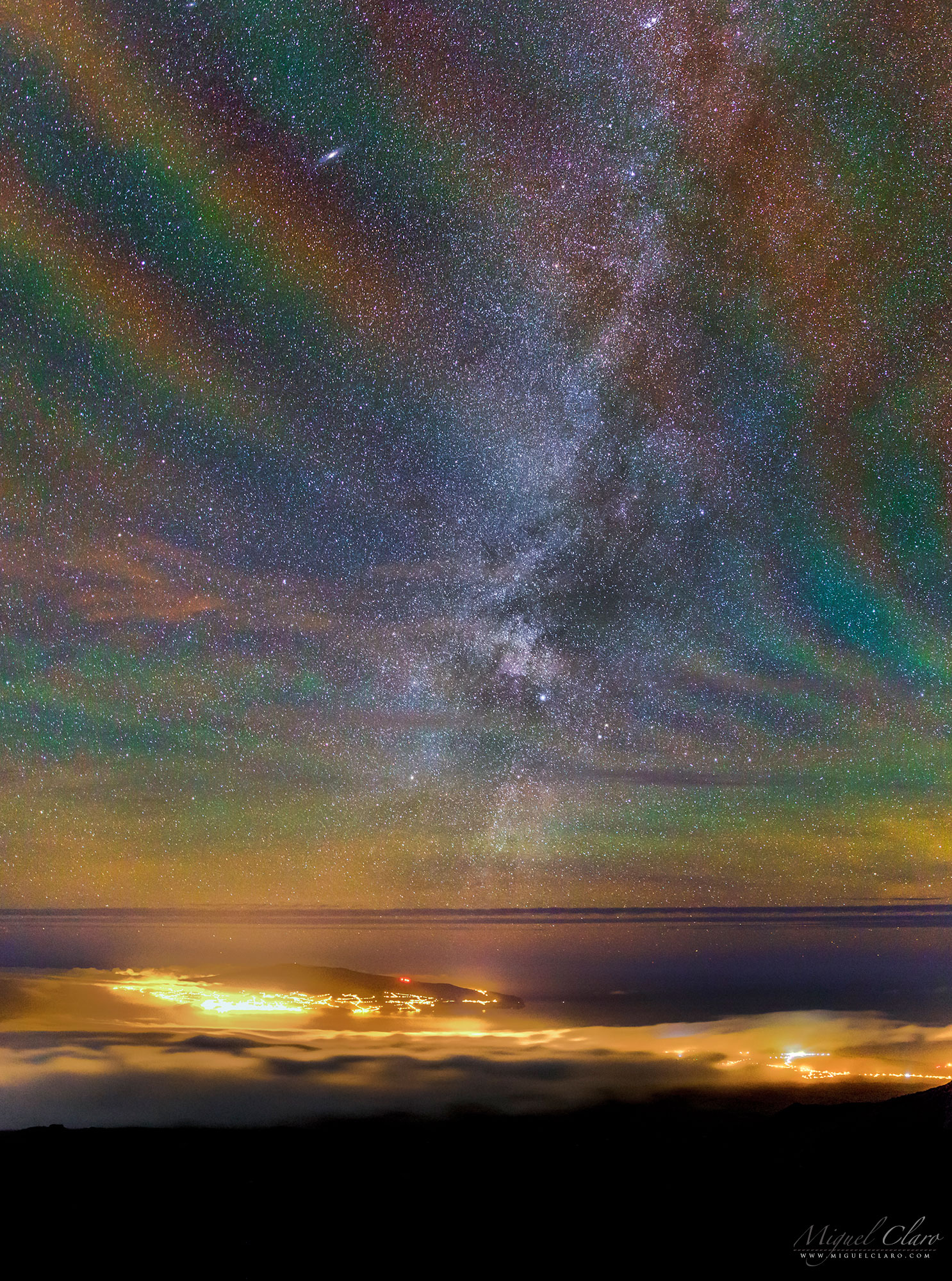
Copyright:
Miguel Claro
(TWAN);
Rollover Annotation: Judy Schmidt
原文:
Why would the sky glow like a giant repeating rainbow? Airglow. Now air glows all of the time, but it is usually hard to see. A disturbance however — like an approaching storm — may cause noticeable rippling in the Earth’s atmosphere. These gravity waves are oscillations in air analogous to those created when a rock is thrown in calm water. The long-duration exposure nearly along the vertical walls of airglow likely made the undulating structure particularly visible. OK, but where do the colors originate? The deep red glow likely originates from OH molecules about 87-kilometers high, excited by ultraviolet light from the Sun. The orange and green airglow is likely caused by sodium and oxygen atoms slightly higher up. The featured image was captured during a climb up Mount Pico in the Azores of Portugal. Ground lights originate from the island of Faial in the Atlantic Ocean. A spectacular sky is visible through this banded airglow, with the central band of our Milky Way Galaxy running up the image center, and M31, the Andromeda Galaxy, visible near the top left. Explore Your Universe: Random APOD Generator
中文翻譯:
🌌 為何天空如同巨型重複的彩虹般發光?這叫做「空氣發光」(airglow)。雖然空氣不斷發光,但通常是難以看到的。不過,當有擾動如接近風暴時,地球的大氣層會出現顯著的波動。這些重力波 (gravity waves) 就像在平靜的水面上投擲石頭時所產生的波紋。
長時間曝光幾乎垂直地捕捉了空氣發光的波動結構,使其變得特別可見。究竟這些顏色是從何而來的呢?深紅色的發光主要來自大約87公里高的氫氧 (OH) 分子,這些分子受到太陽的紫外光激發。橙色和綠色的空氣發光則可能來自稍微高一點的鈉 (sodium) 和氧 (oxygen) 原子。
這幅精彩的圖片是在葡萄牙的皮科山 (Mount Pico) 爬山時拍攝的,地面燈光來自大西洋上的法伊爾島 (Faial)。在這條帶狀的空氣發光中,壯麗的天幕清晰可見,中間的銀河 (Milky Way) 銀河系在圖像中央延伸,而仙女座星系 (Andromeda Galaxy, M31) 則在左上角可見。
🌌 #空氣發光 #空氣發光現象 #銀河系 #仙女座星系 #皮科山 #太陽的紫外光 #重力波 #自然奇觀 #探索宇宙 #天空之美
來源:NASA每日圖片


